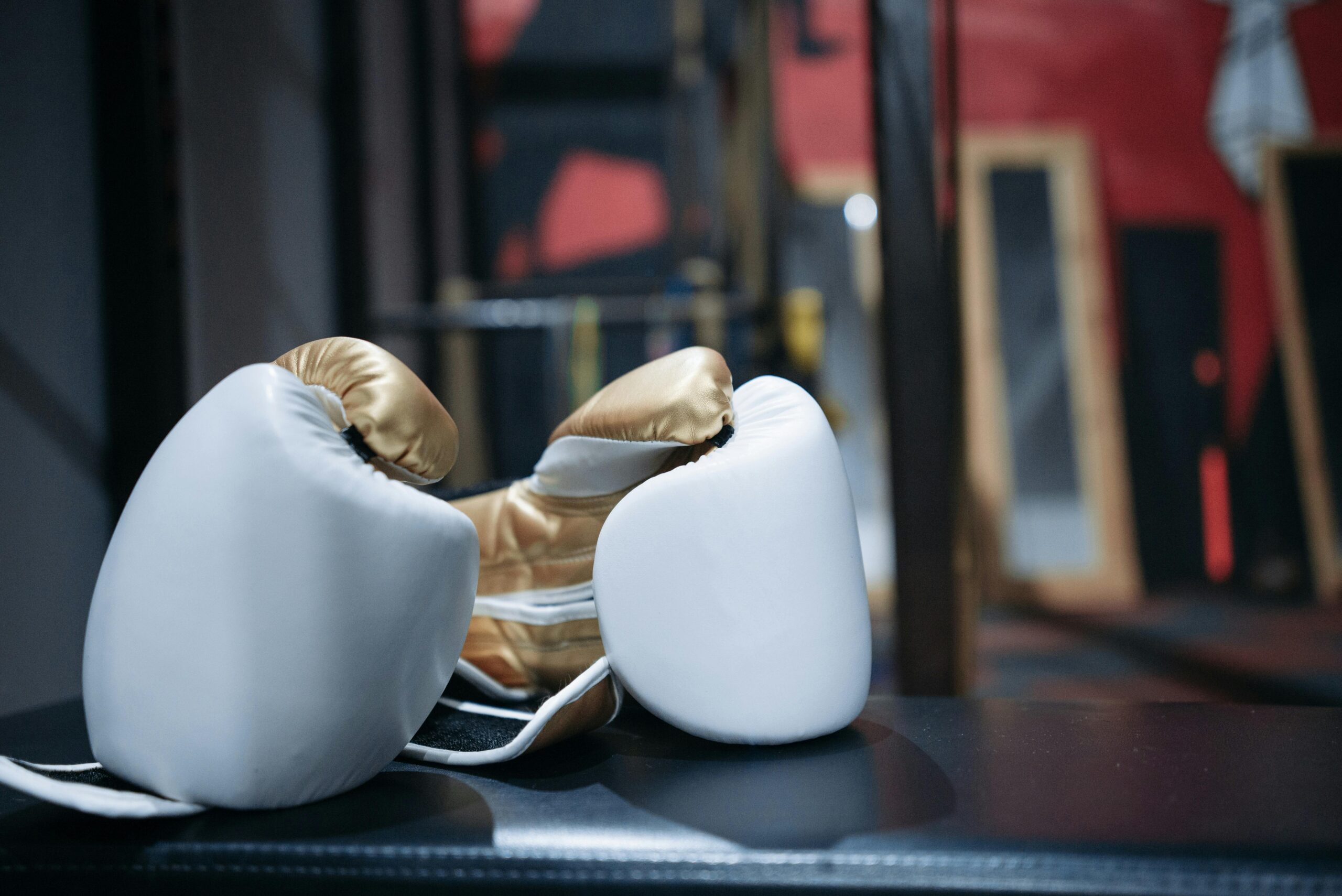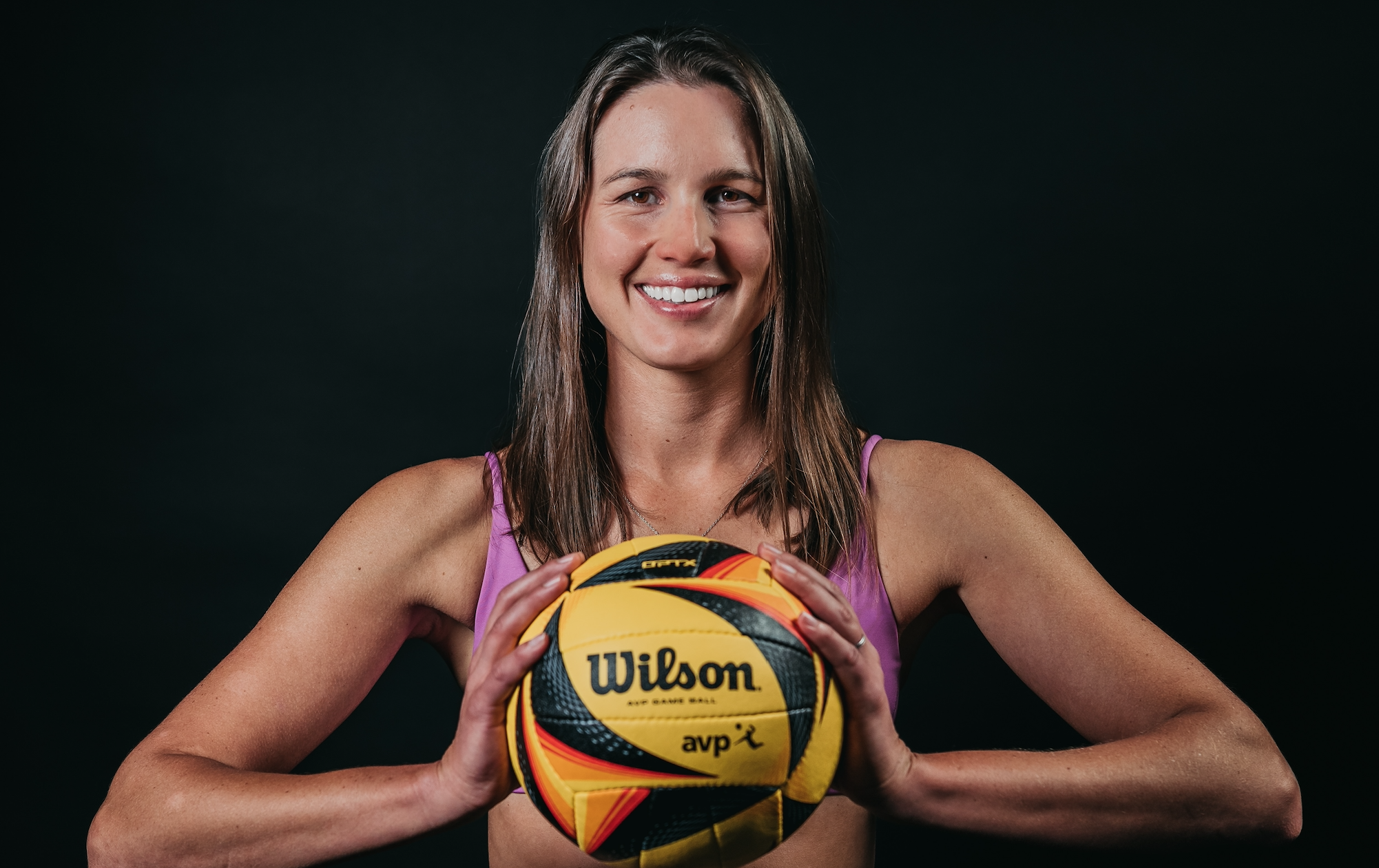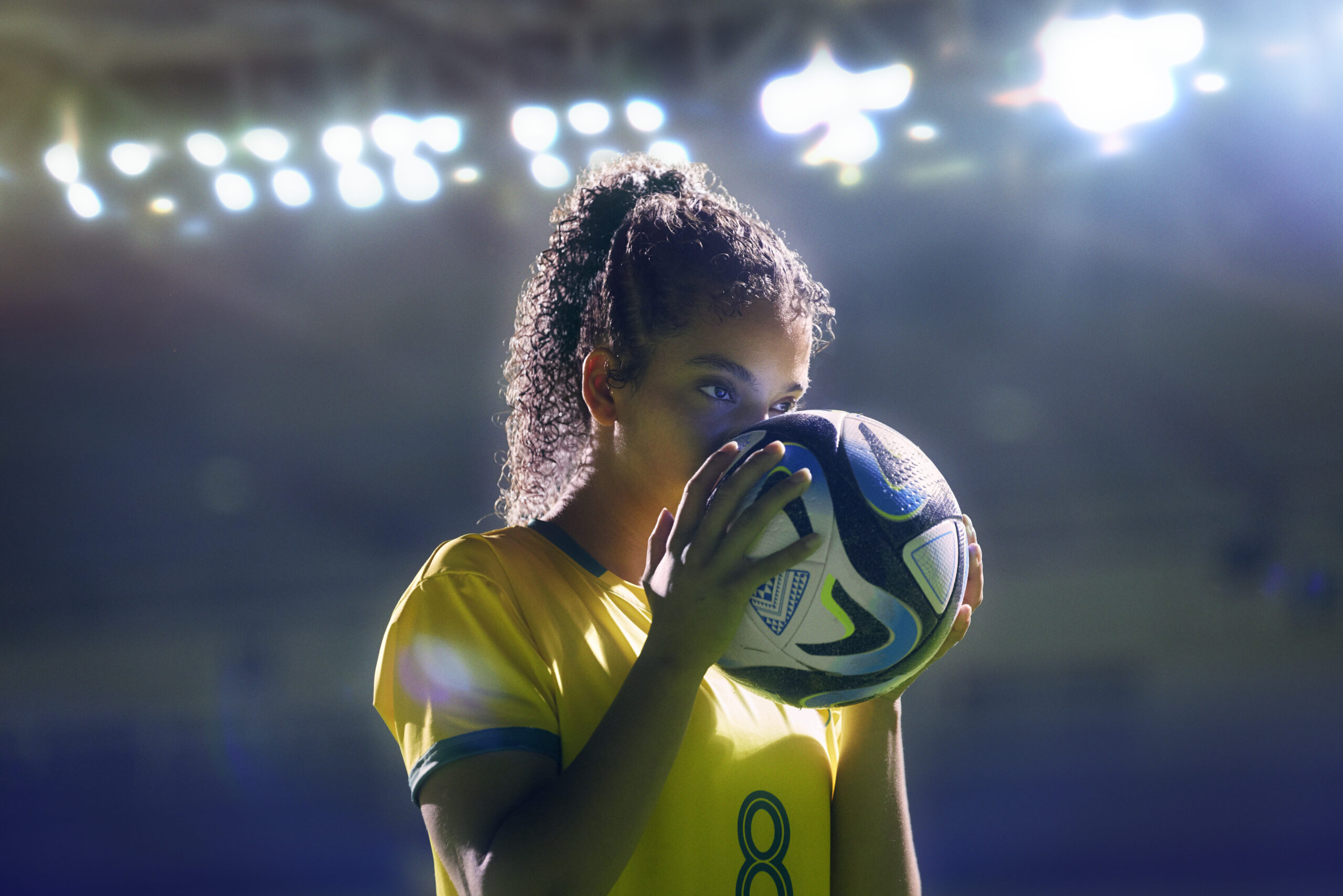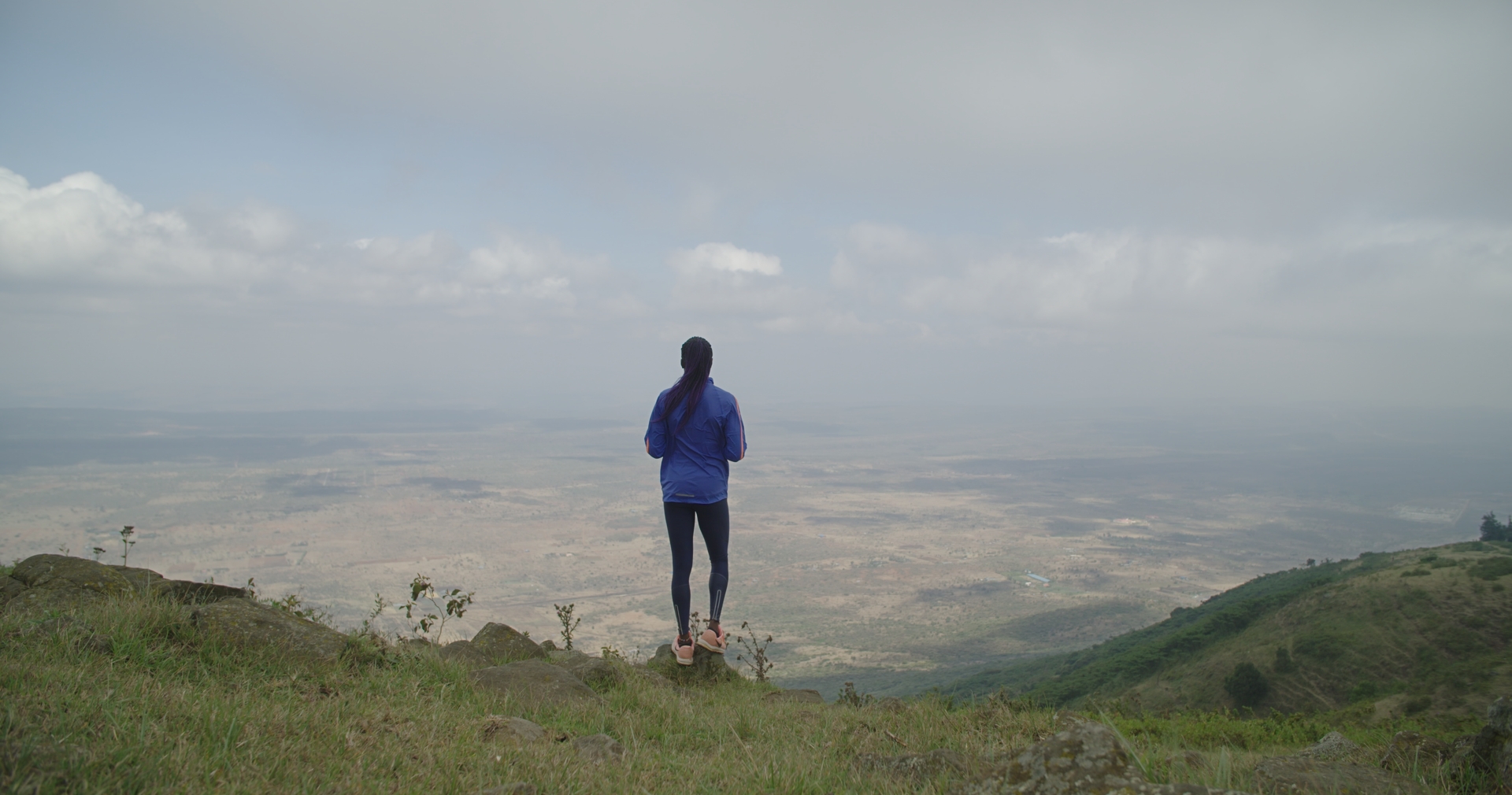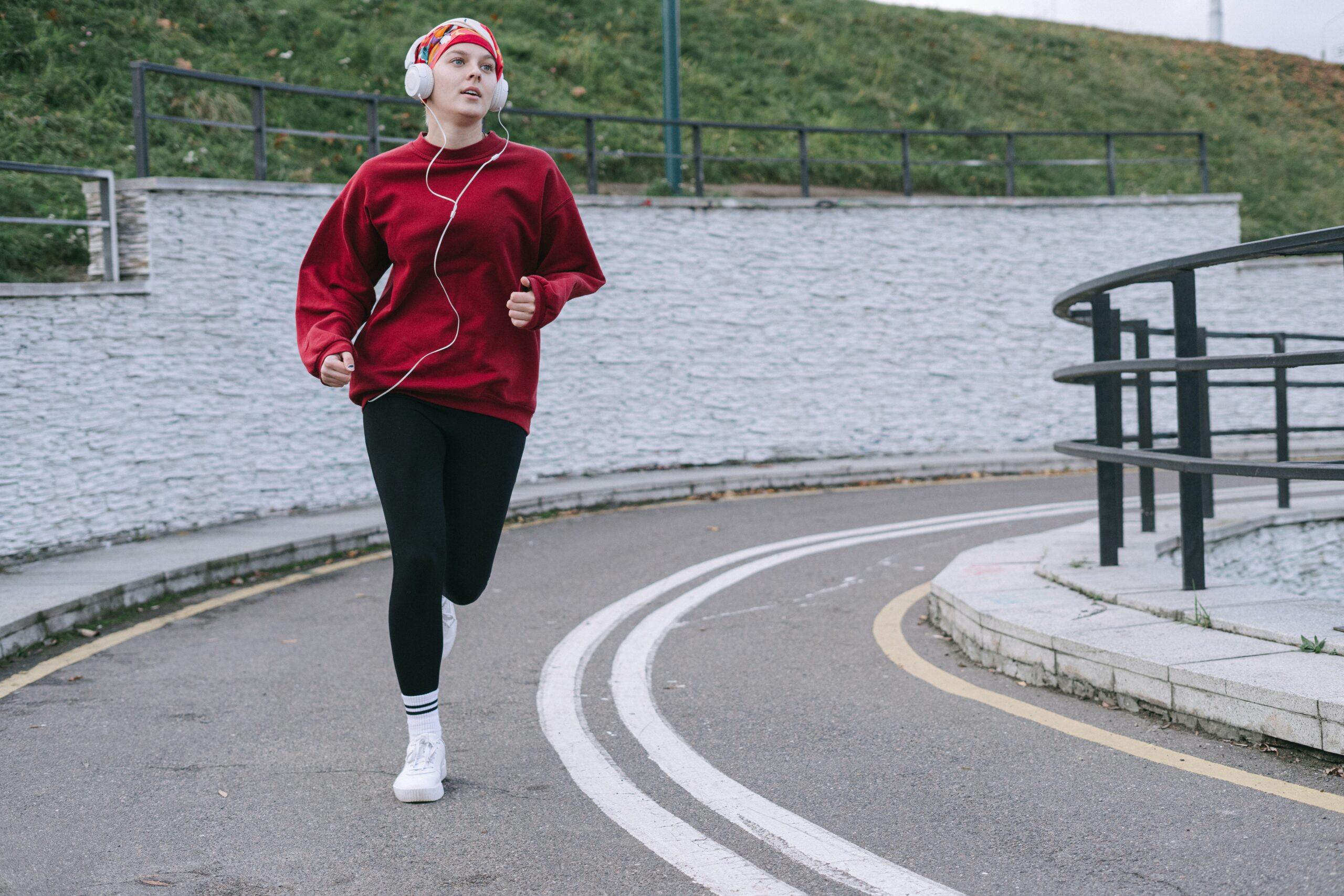
Navigating a career as a woman in a male-dominated industry comes with many challenges. Working in a male-dominated industry and doing it on live TV? That’s a whole other ball game, one which former sports reporter and award-winning sports journalist Brooke Bentley has played many times. Today, she is also the author of a new novel called ‘Sideline Confidential’, which draws inspiration from her own real life experience, weaving it into a fictional story that could almost be ripped straight from the headlines of the sports pages. ‘Sideline Confidential’ is a behind-the-scenes peek at the obstacles and double standards many women face in the male-dominated space of sports journalism.
When young sports journalist Blake Kirk lands her dream gig – working as a reporter for her hometown’s pro football team – she anticipates many of the challenges that accompany the gig – long hours in the office and on the field, many days of travel, immense pressure to succeed as a woman in sports journalism. What she doesn’t expect are the double standards and old-school entitlement that trip her up at every turn.
From day one, Blake faces off with her boss who does everything in his power to make her job difficult—from forcing her to ride a separate bus to the games; to blocking her from interviewing players in the locker room; to pushing her to “network” with colleagues at a strip club. As suggestive notes appear on her desk and a consensual celebrity hookup is weaponized against her, Blake’s dream devolves into a nightmare, and she is forced to choose between her dignity and her career.
After taking a break from sports reporting in real life, Brooke knew she wanted to share more about her successful career, while also being candid about balancing motherhood with ambition. This novel is her entry back into her career, with a different perspective that encompasses who she is as a mom, a writer, and a lover of sports.
We had the opportunity to learn more about how the idea for ‘Sideline Confidential’ came about and the struggles she faced as a new mom while also trying to maintain her reporting career. We also couldn’t resist the opportunity to chat with the sports fanatic about her thoughts on some major recent women’s sports cultural touchstones – Coco Gauff’s US Open win which got more viewers than the men’s US Open final match, the harassment allegations overshadowing the Spanish women’s national team World Cup win earlier this year, as well as some of the women who are inspiring her on and off the field today.


Can you tell us how the idea for writing ‘Sideline Confidential’ came about?
I started writing this novel at the most inconvenient time in my personal life. I had recently returned to my job in sports journalism after giving birth to my first child. I was navigating my first football season as a mother with little sleep, uneven hormones, and a layer of baby weight (which people are quick to point out when you work on camera).
This novel had been percolating in my subconscious for years, but I’d been too immersed in the sports media world to write it. The time away during my maternity leave and the challenges I was facing as a new mom with a demanding work schedule gave me a new perspective. Over the next few years, I wrote the manuscript intermittently while also having a second child. Then, I shelved it. I was busy “mommying” and working. It wasn’t until news broke about disturbing harassment allegations in professional football that I decided to revisit the novel with a new lens.
I started with a blank page and renewed determination to detail the sexual politics women face in sports journalism. Be pretty but not too sexy. Know your sport but don’t outsmart the men. Be a great mother but don’t take off time from work. It can feel like an impossible tightrope. That’s what I set out to capture.
How did you choose which of your own real life experiences to incorporate into the story of your lead character Blake Kirk?
Just like Blake, when I began my job in the NFL, my boss asked me to ride my own bus to games. It was 2007 and I was the first woman to travel consistently with the team. My boss was worried that having a woman on the bus would distract the players and coaches on game days. It was an instant blow to my psyche to think that I didn’t belong with the rest of my coworkers. I also couldn’t comprehend how my presence on the bus could affect a team who played amidst cheerleader dances and thumping fan noise.
However, my story didn’t unfold like Blake’s did- I ultimately earned the confidence of team brass and rode the bus with the traveling squad. Still, the bus experience stuck with me. I told myself that if I ever write a book about a young woman working in professional football, it will begin with the character being asked to ride her own bus. That scene is a metaphor for how women are sidelined in this industry.
Did it feel cathartic or uncomfortable or confronting in any way to write this book, knowing your own experience in the industry?
Most definitely cathartic. Although some experiences were hard to relive. Throughout my career, I received many unsolicited comments or texts about my body and appearance. I would screenshot them in case I ever needed them for documentation, but I never had a harassment situation escalate to that point. There was no Blake vs. Johnny showdown in real life.
As background for Sideline Confidential, I did talk to women who endured traumatic sexual harassment in the workplace. One former sports journalist said that she related profoundly to the novel, so much so that it gave her PTSD- especially the strip club scene. She was asked by many pro sports executives to meet her in strip clubs for interviews and refused, which meant losing valuable information, access, and quotes for her stories.
It’s exciting to see so many amazing women making inroads and breaking barriers into the male-dominated arena of sports broadcasting. Who are some reporters that you admire right now?
When you talk about current trailblazers in sports broadcasting, in my opinion, the conversation starts with Doris Burke who will become the first woman to serve as a TV game analyst for the NBA finals. Doris is one of the few women to serve as an analyst covering men’s pro sports. She’s impeccably prepared, professional at every turn, and thoughtful in her in-game dialogue.
I’m also a huge fan of Hannah Storm. She started her career covering sports in Houston, and as a native Houstonian I idolized her when I was a little girl. Hannah also has been able to balance motherhood with a national TV career that has spanned over three decades. She is an inspiration to me in many regards.

The larger cultural discussions around women’s sports and the attention/funding/support it is getting is interesting to see. What are some of the big stories over the past few years that get you excited?
I feel like last summer was a celebration of women that started with Taylor Swift’s tour and then flowed into the “Barbie” movie. Those female-led entities proved how powerful and lucrative girl power can be. The Eras Tour is on pace to be the first to gross over two billion in ticket sales. The “Barbie” movie crushed the box office with the year’s biggest opening weekend, and director Greta Gerwig became the first solo female director to helm a billion-dollar movie. That energy is also pulsating through women’s sports too.
Look at soccer. The National Women’s Soccer League will add new teams next year in Utah and San Jose, and for the second year in a row, the league’s championship match will air in primetime on CBS. Perhaps more significant, is how women’s soccer players fought for a law that ensures all Team USA athletes receive equal pay and benefits regardless of gender. I think this is just the start of more money pouring into women’s sports.
This year’s Women’s World Cup winners Spain saw their incredible win overshadowed by sexual harassment by the manager, as well as backlash to player Jenny Hermosa who has filed a complaint. From your perspective, how does cultural conversation (around sports, #MeToo, equality) play a role in how these high profile sports incidents play out in the media?
It pains me that an unwanted kiss overshadowed Spain’s hard-fought World Cup Win. We should be celebrating the 23 women who left their hearts on the pitch, but the kiss exposed an undeniable history of machismo in Spanish soccer that needed to be addressed. In Spain, the “se acabo” (“that’s enough”) feminist movement has reached a fever pitch, and the soccer federation is being forced to take accountability for its actions and make changes.
I also think author Glennon Doyle shared a poignant message on “X” about this: “ok so a team of relentlessly excellent women did all the work and won big in spite of abusers patronizes and misogynists in power taking credit for their work…WAIT I GET THE SOCCER! We all get the soccer! WE ARE ALL THE SOCCER!”
This year’s US Open tennis finals also saw Coco Gauff’s final win get at least a million more eyeballs on the broadcast than the men’s final game. Why is this significant for people to know about, especially with all the discussions around equality, funding and broadcast coverage for women’s sports?
Coco’s win at the U.S. Open embodied the rising excitement around women’s sports right now. She was must-watch TV compared to the anticlimactic straight-set men’s final. Coco darted around the court with lightning quick feet, flexing her strength with punishing backhands and showcasing her grit and determination in a three-set win. Her superb tennis compelled viewers to watch, her personal story won over Americans. Coco had dreamed of that moment since she was a little girl, and we got to ride her emotional tidal wave as she ran into the stands to hug her parents.
She showed women and girl athletes everywhere that they deserve to be in the spotlight. Coco’s win also seemed to carry more significance as it was the U.S. Open’s 50th anniversary of offering equal prize money to men and women. It was the first of the Grand Slam tournaments to do so due to the lobbying of tennis legend Billie Jean King. To have so much attention on women’s tennis this year felt extra big.
How has the overall coverage of women’s sports changed from the time you started in your career, to today? What are some exciting moments of progress you can point to that show things are changing?
Women’s sports are getting exponentially more shine right now than when I started my career. As a former volleyball player, I loved seeing the viral coverage of the volleyball game at the University of Nebraska with 92,000 fans in the stands. The 2023 NCAA basketball tournament proved to be much more exciting on the women’s side with ratings soaring while the men’s viewership declined.
The women’s final aired live on a broadcast network for the first time since 1995, and it shattered records with an average of 9.92 million viewers. The deck remains stacked in favor of men’s sports, but women are making their case on the court or field. And they’re changing the dynamics in women’s sports because of it.
As a mom you have written a really powerful op-ed for Mother mag about juggling a demanding sports reporter job with breastfeeding and postpartum health. Why was it important for you to write this?
Returning to work seven weeks after having my first child was one of the hardest stages of my career. I was physically exhausted from sleepless nights with a newborn and emotionally depleted from uneven hormones. I remember frantically looking for a private bathroom in a stadium so I could plug in my breast pump and pump milk before working a football game. As the machine cranked away, I fought back tears. I was wading through postpartum distress and felt completely alone.
I wanted to share that experience and make the conversation around postpartum challenges accessible. The feedback I got touched my soul. I heard from a high school volleyball coach who struggled to pump while coaching games. I heard from a former college classmate who was dealing with depression and isolation while working on a dissertation just weeks after having a baby. It was amazing how many women connected with my piece, and how strong that connection was felt.
What do you hope readers, especially women aspiring to follow in your shoes as a sports reporter, will love most about ‘Sideline Confidential’?
It’s incredibly hard and scary for young women in entry positions to find their voice and stand up for themselves in any male-dominated industry. I want this book to tell these women that they aren’t alone. Many of us have been there and we can support each other by listening, speaking up, telling our stories, and giving each other a voice. Our voices matter!
You can purchase your copy of ‘Sideline Confidential’ HERE, and follow Brooke Bentley on Instagram and Twitter.












